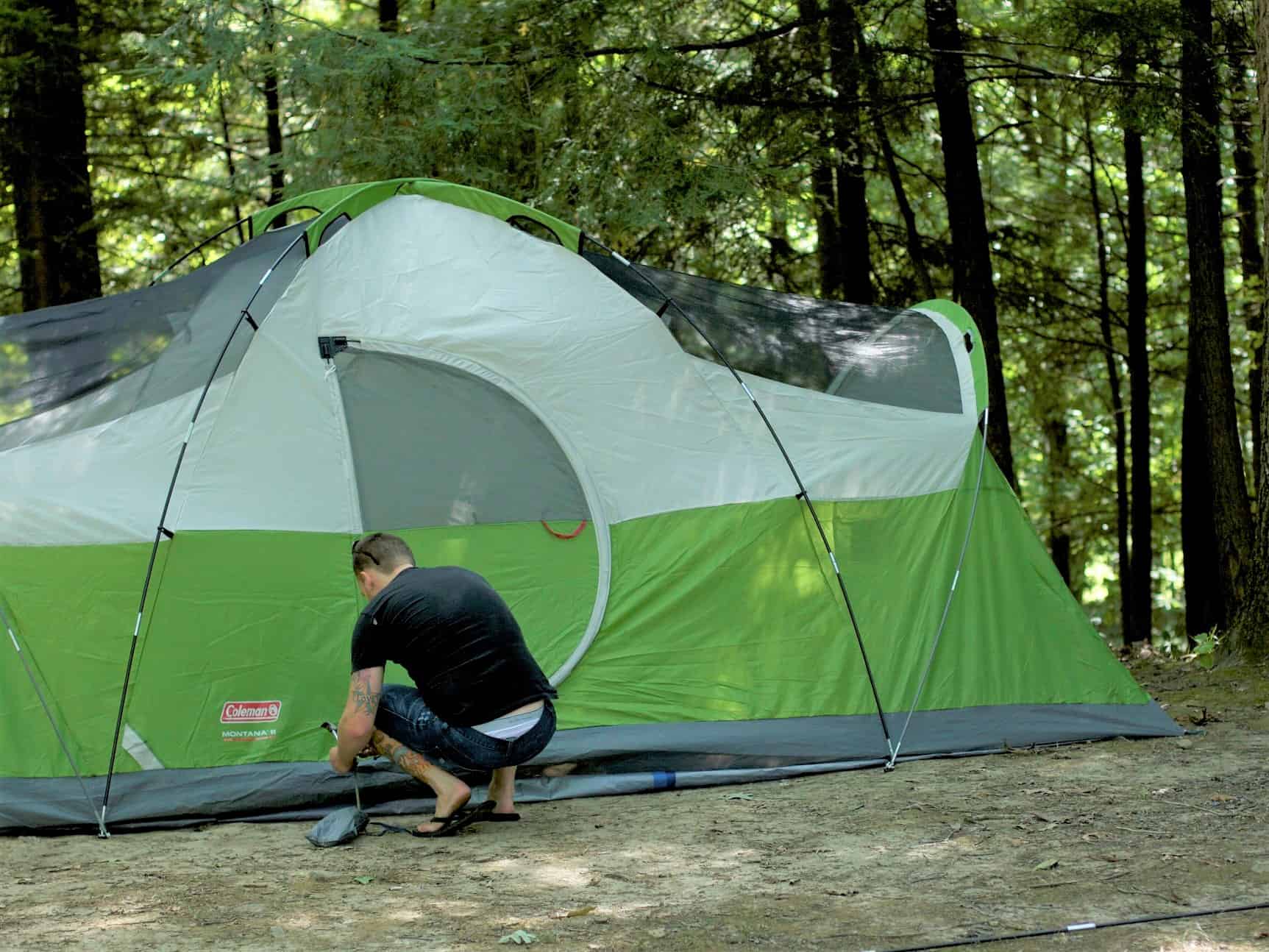Follow these steps to hang a bear bag:
1) Avoid any unwanted encounters by finding a tree approximately two hundred feet away from your tent. Your chosen tree requires a solid, sturdy branch at least six feet long and approximately twenty feet above the ground.
2) Tie your bag shut and attach a rope to your bag using a locking carabiner.
3) The tricky part is throwing the bag over the branch without getting it stuck. Much easier said than done. I prefer to weigh the bag down with a pseudo-heavy rock or stake to make throwing the bag easier.
4) Once the bag is over the limb, shimmy it out about six feet away from the trunk. This places it outside a bear’s natural reach.
5) Once over the branch, fill your bag and secure it. Run the other end of the rope through the locked carabiner.
6) Hoist your bag in the air, then tie the loose end of the rope around a small, short stick. This requires the use of a clove hitch to keep the rope from slipping. Place the stick as high as you possibly can. Should a bear chew through the string, you want it to be below the stick.
To access your food, pull the rope down, release the twig, and let gravity do the rest.

